DIAGNOSIS:
Learn to spot Lewy body dementia (LBD). LBD is the most common type of dementia after Alzheimer’s. Find out the symptoms that make LBD different.
Lewy bodies are abnormal deposits of a protein called alpha-synuclein in the brain.
- Lewy body dementia’s warning signs have three common presentations:
- Some individuals will start out with a movement disorder leading to the diagnosis of Parkinson’s disease and later develop dementia. This is diagnosed as Parkinson’s disease dementia.
- Another group of individuals will start out with a cognitive/memory disorder that may be mistaken for AD, but over time two or more distinctive features become apparent leading to the diagnosis of ‘dementia with Lewy bodies’ (DLB).
- Lastly, a small group will first present with neuropsychiatric symptoms, which can include hallucinations, behavioral problems, and difficulty with complex mental activities, also leading to an initial diagnosis of DLB.
Regardless of the initial symptom, over time all three presentations of LBD will develop very similar cognitive, physical, sleep and behavioral features.
- The most common symptoms of LBD include:
- Impaired thinking, such as loss of executive function (planning, processing information), memory, or the ability to understand visual information.
- Fluctuations in cognition, attention or alertness;
- Problems with movement including tremors, stiffness, slowness and difficulty walking
- Visual hallucinations (seeing things that are not present)
- Sleep disorders, such as acting out one’s dreams while asleep
- Behavioral and mood symptoms, including depression, apathy, anxiety, agitation, delusions or paranoia
- Changes in autonomic body functions, such as blood pressure control, temperature regulation, and bladder and bowel function.
Early and accurate diagnosis is tricky but vital, because LBD patients may react to certain medications differently than Alzheimer’s or Parkinson’s disease patients. A variety of drugs can worsen LBD symptoms. At the same time, early recognition, diagnosis and treatment of LBD can improve the patients’ quality of life.
SOURCE:
Lewy Body Dementia Association
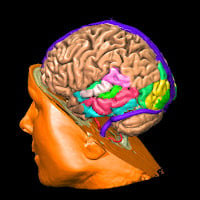

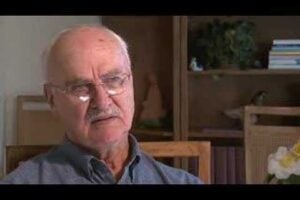
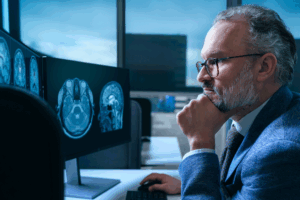

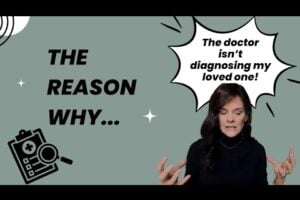



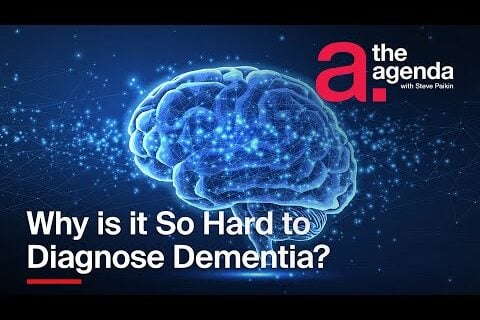


Parkinson's disease is a long-term degenerative disease of the central nervous system that mainly affects the motor system of human body. The symptoms generally come on slowly over time. Affected person should take parkinson's disease treatment
My husband began showing signs of dementia after a double bypass in 1999. He suffered a stroke in 2003 after undergoing a knee replacement "re-do' (glue did not hold!). His decline acellerated at this point. We were in a car wreck in 2007 where we both passed out from impact of running into back of motorhome, then husband suffered a broken C2 from a ATV accident in 2009. They believe his dementia began because of all the head injuries beginning with a horrific auto accident where husband was thrown through the windshield at the age of 19. He suffered a broken jaw, collapsed lung, in the hospital for a month. Husband became very difficult to handle when he become paranoid (LBD), 2014 He had to be removed from our home and placed in the physch ward of Confluence Hospital. He spent two months there because they could not find any medication that would calm him. Medicare would no longer fund him so I had no choice but allow them to move him as soon as a facility would accept him. He was moved three hours away from the family and I was the only one who visited him before he passed away three weeks later. I am sorry I did not think to offer his brain for study to help them find a cure for this awful disease. It is awful to watch someone you love go through this decline. You lose them one little bit at a time. This was a twenty year process!
Our research group has been combining near infrared light therapy with brainwave biofeedback and getting positive results with both Alzheimer's, FTD and LBD patients. I would suggest people start exploring non-drug, noninvasive options along with the more traditional approaches.
Marvin Berman PhD, President
Quietmind Foundation
619-940-0488
http://www.quietmindfdn.org
My husband was diagnosed with LBD 9 years ago after experiencing extreme night disturbances, to the point of self-harm and hallucinations. To read your headline, saying "next to Alzheimer's, LBD is the most common form of dementia", is terribly misleading. It may very well be true but 9 years ago, all of my husband's physicians were at a total loss as to what his issues were. It was only after his Sleep Disorder Physician went to a conference and one of the speakers was well-versed in LBD. When his physician came home, he diagnosed my husband with Lewy Body. We have spent the last 8 years being extremely frustrated with treatment options. It sadly wasn't until Robin Williams suicide, that LBD started REALLY being talked about. It very well may be the second most common form of dementia but we need to do a better job informing physicians and most importantly, those who suffer from this life-altering disease.
I agree. I cared for someone with LBD in 2008 and the physicians were very inexperienced with it.
I personally had to ask our doctor to please investigate lbd esp rem sleep disorder. He had not heard of lbd.
All of these symptoms hit me and I was diagnosed with pseudodementia. All it was was the statin I was prescribed. 80mg per day Atorvastatin (Lipitor). No one figured it out until I stopped taking my meds. They now call it Statin Sensitivity. However, that's like comparing a paper cut to an amputation. Now I have brain damage.
NO. Statins don't cause brain trauma and/or "damage." Just stop it.
If your loved one is in the early stages of LBD or you just received the diagnosis, read this book about extending the early stage: Treasures in the Darkness by Pat Snyder.
The book's foreword is written by Dr. Daniel Kaufer, a member of LBDA's Scientific Advisory Council. It is found at Amazon.com
Eu queria ,pois acho que me encontro no estágio inicial porem só entendo o português
my husband has Lewy Body Dementia . Before that he had been treated for 2 years for prostate cancer. After finishing the radiotherapy treatment I noticed that he was getting confused and beginning to have hallucinations. This gradually got worse and he has now been in care for a year. He can't walk can only whisper and is unable to feed himself now. Is there anything that could help his speech ? I feel so awful as I can't understand him when he tries to talk to me. Its so hard !
This comment has been removed by the author.
So sad, my hubby is now in his 8th yr, like you I cant understand him,xxx
Teepa Snow can probably help you. Visit her website at http://www.teepasnow.com and watch her YouTube videos.